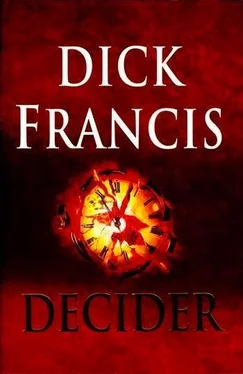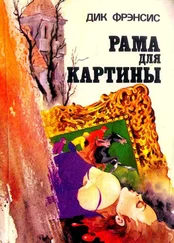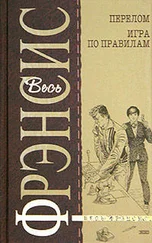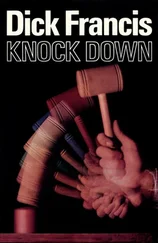Keith, legs astride, shoulders back, mane of hair flying, had flung the entire dining table over and swept an arm along the line of bottles and glasses on the serving sideboard. Tablecloths, knives, plates, cheese, champagne, coffee, whipped-cream puddings, lay in a mess on the floor. Wine poured out of opened bottles. The waitresses pressed their hands to their mouths and various Strattons grabbed napkins and tried to clean debris from laps, trousers and legs.
‘Keith!’ screeched Conrad, equally furious, quivering on his feet, thunderous as a bull before charging. ‘You lout ’
Victoria’s cream silk suit ran with coffee and Bordeaux. ‘I’m presenting the Cup,’ she yelled, wailing, ‘and look at me.’
Marjorie sat calm, unspattered, icily furious. Ivan, beside her, said, ‘I say, Keith, I say ...’
Hannah, trifle dripping down her legs, used unfilial language to her father and also to her son, who turned ineffectively to help her. The thin woman who sat beyond Ivan, unconcernedly continuing a relationship with a large snifter of brandy, I provisionally guessed to be Imogen. Dart wasn’t there. Forsyth, sullenly seeming to be relieved that someone other then he was the focus of family obloquy, made his way to the doorway into the main passage, where we’d arranged a flap of canvas that could be fastened across to give privacy.
People were pulling the flap aside, trying to see in, to find out the cause of the commotion. Forsyth shouldered his way out, telling people rudely to mind their own business which, of course, they didn’t.
The whole scene was laughable but, not far below the farcical surface, as each family member uneasily knew, lay the real cause of destructive violence, the melt-down in Keith that had so far gained most expression in hitting his wives and taking a belt at Lee Morris, but would one day go too far for containment.
Marjorie was holding in plain sight the copy of Harold Quest’s confession; the cause of the débâcle.
Keith suddenly seized it out of her hand, snatched the brandy glass rudely from his wife, poured the alcohol over the letter, threw down the glass and with economic speed produced a lighter from his pocket and put a flame to the paper. Harold Quest’s confession flared brightly and curled to ash and was dropped and stamped on, Keith triumphant.
‘It was only a copy,’ Marjorie said primly, intentionally goading.
‘I’ll kill you,’ Keith said to her, his lower jaw rigid. His gaze rose over her and fastened on me. The animosity intensified, found a more possible, a more preferred target, ‘I will kill you ,’ he said.
In the small following silence I turned and went out the back way with Henry, leaving the poor waitresses to clear up the garbage.
‘That was only half funny,’ Henry said thoughtfully.
‘Yes.’
‘You want to be careful. He might just kill you next time. And why? You didn’t bring Harold Quest here. You didn’t suss out the hamburger.’
‘No,’ I sighed. ‘My pal Dart Stratton says logic never interferes with instinct, in Keith. But then, half the world’s like that.’
‘Including murderers,’ Henry said.
‘How inflammable,’ I asked, ‘is the big top?’
Henry stopped walking. ‘You don’t think he’d try —? He’s pretty handy with that lighter. And burning the fence...’ Henry looked angry but after a moment shook his head.
‘This big top won’t go on fire,’ he said positively. ‘Everything I brought here is flame-retardant, flame-resistant or can’t burn, like all the metal poles and the pylons. There were disasters in circuses in the past. The regs now are stringent. This big top won’t burn by accident. Arson... well, I don’t know. But we’ve got extinguishers all over the place, as you know, and I ran a bit of water main up to the roof in a sort of elementary sprinkler system.’ He took me along to see. ‘That bit of rising main,’ he pointed, ‘the pressure’s pretty good in it. I fed a pipe up and connected it to a garden hose running along inside, below the ridge. The hose has small holes in it. The water squirts out OK.’
‘Henry! You’re a genius.’
‘I had a bit of time yesterday, when you went off to London, and I reckoned the racecourse couldn’t afford another calamity like the stands. A good precaution’s never wasted, I thought, so I rigged up this very basic sprinkler. Don’t know how long it would work. If ever flames got that high, they could melt the hose.’ He laughed. ‘Also, I, or someone who knows, has to be around to turn the tap on. I had to stick tape and those labels all over it, saying, “DO NOT TOUCH THIS” in case someone turned it on while all the crowds were inside tucking into their smoked salmon sandwiches.’
‘My God!’
‘Roger knows about it and Oliver, and now you.’
‘Not the Strattons?’
‘Not the Strattons, I don’t trust them.’
Keith, definitely, would have soaked the paying customers to ruin their day.
Henry went on, trying to reassure me. ‘But Keith won’t actually try to kill you, not after he said in public that he was going to.’
‘That wasn’t public. That was the Stratton family.’
‘But I heard him, and the waitresses did.’
‘They would pay off the waitresses and swear you misheard.’
‘Do you mean it?’
‘I’m certain they’ve done that sort of thing often. Maybe not for murder, but other crimes, certainly.’
‘But... what about newspapers?’
‘The Strattons are rich,’ I said briefly. ‘Money will and does buy more than you’d think. Money’s for using to get what you want.’
‘Well, obviously.’
‘The Strattons don’t want scandal.’
‘But they can’t bribe the Press!’
‘How about the sources that speak to the Press? How about suddenly blind waitresses with healthy bank balances?’
‘Not these days,’ he protested. ‘Not with our insatiable tabloids.’
‘I never thought I’d feel older than you, Henry. The Strattons can outbid the tabloids.’
Henry’s mind I knew to be agile, practical, inventive and straight, but of his homelife and background I knew nothing. Henry the giant and I had worked together in harmony over a stretch of years, never intimate, always appreciative; on my part, at least. Henry’s junk dealings had found me a whole untouched Adam room once, and dozens of antique fireplaces and door frames. Henry and I did business by telephone — ‘Can you find me...’ or ‘I’ve come across this...’ These Stratton Park days were the first I’d spent so much in his company and they would, I thought contentedly, lead to a positive friendship.
We rounded the far end of the big top and watched the runners for the second race walk by on their way out onto the track. I found I was liking more and more to watch them, having given them little thought for most of my life. Imagine the world without them, I thought: history itself would have been totally different. Land transport wouldn’t have existed. Mediaeval battles wouldn’t have been fought. No six hundred to ride into a valley of death. No Napoleon. The seafarers, Vikings and Greeks, might still rule the world.
Horses, fleet, strong, tamable, had been just the right size. I watched the way their muscles moved under the groomed coats; no architect anywhere could have designed anything as functional, economical, supremely proportioned.
Rebecca rode by, adjusting her stirrup leathers, her attentions inward on the contest ahead. I had never wanted to ride, but at that moment I envied her: envied her skill, her obsession, her absolute commitment to a physical — animal — partnership with a phenomenal creature.
People could bet; they could own, train, breed, paint, admire, write about thoroughbreds: the primaeval urge to be first, in both runner and rider, was where the whole industry started. Rebecca on horseback became for me the quintessence of racing.
Читать дальше




